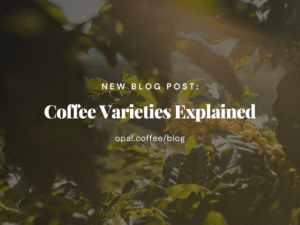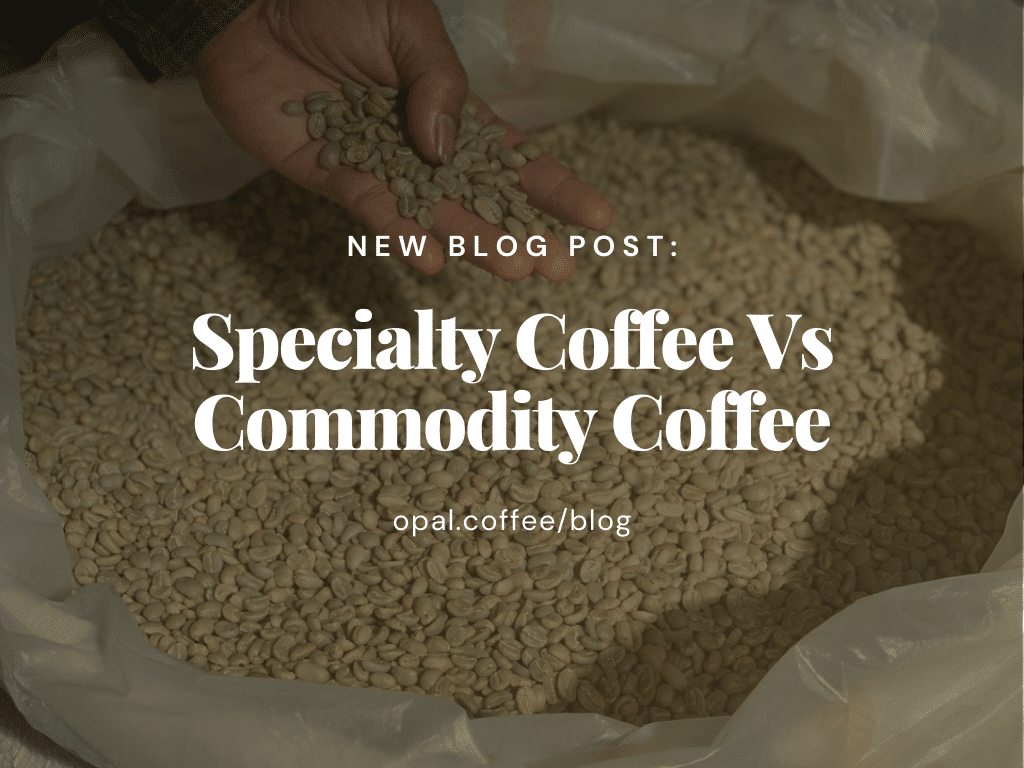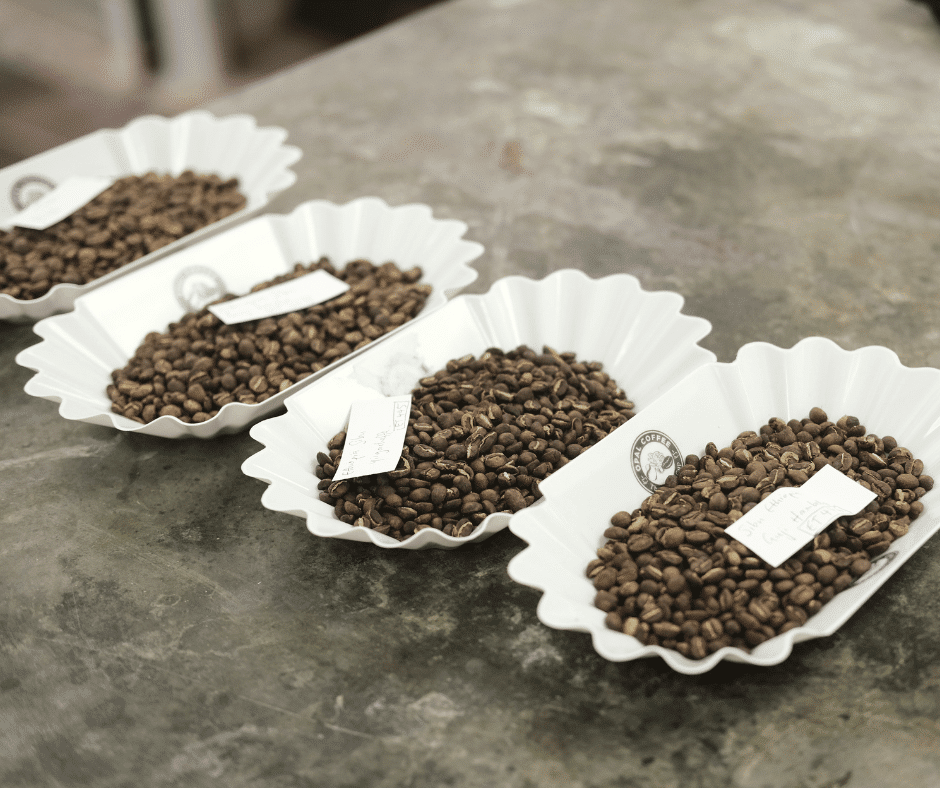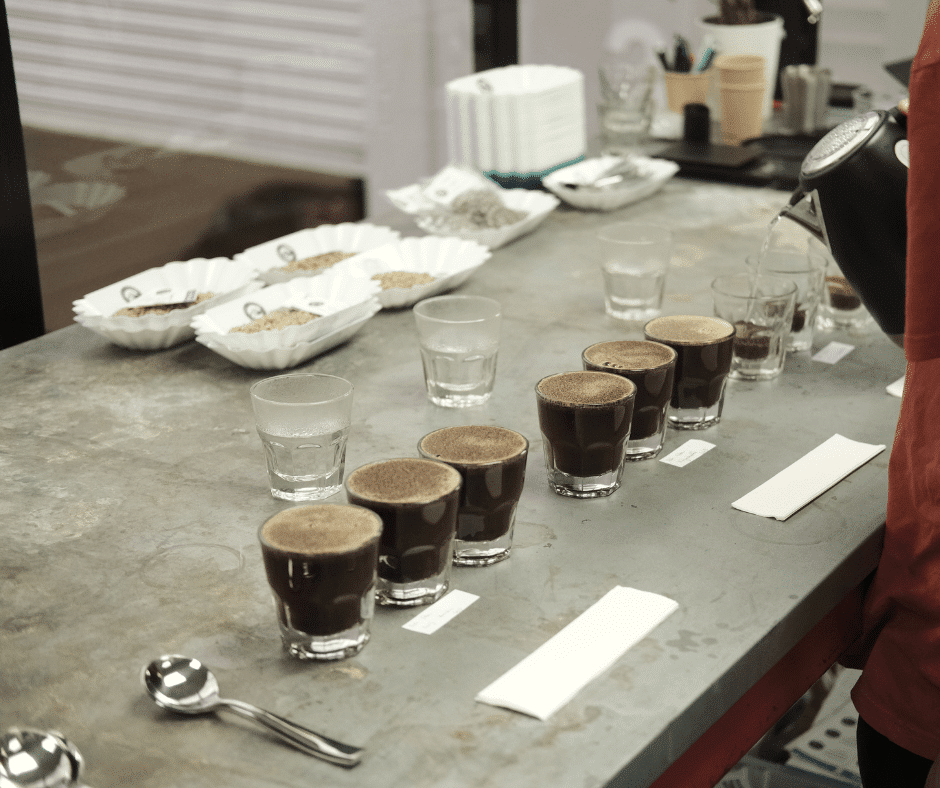
Coffee Varieties Explained
The first blog of the year is going to be about understanding coffee varieties.
With more than 125 coffee species, only two are commercially viable: Coffea arabica and Coffea canephora (robusta).

Whether you’re new to the wonderful world of coffee or are a seasoned coffee enthusiast looking for a refresh, we thought it would be helpful to answer one of the most common questions: What is specialty coffee? What is the big deal about specialty coffee and why has it gained so much popularity? What is the difference between specialty coffee and commodity coffee? Why does specialty coffee matter? When you hear the term ‘specialty,’ it often it gets lumped into similar terms such as ‘premium’ or ‘quality.’ But this isn’t to be confused with these terms because specialty coffee does not only refer to the high quality of the bean. In fact, it is much, much more than this.
Let’s first get into what makes coffee specialty and where this term originated from. The term ‘specialty coffee’ was coined by Erna Knutsen in 1974 who was considered to be an industry pioneer. Knutsen was known as the godmother of specialty coffee where she consistently advocated for the values of quality within coffee, making the specialty coffee movement what it is today.
Specialty coffee is often understood to be referring to the whole process of single origin coffee from the farm to cup. According to SCA (Specialty Coffee Association) it is understood that every aspect of the coffee chain plays a factor in specialty coffee. From the coffee farmer, the green coffee buyer, the roaster (how it is roasted), the barista (how it is brewed and prepared), to the consumer. These aspects all play a vital role in the process and definition of specialty coffee. Specialty coffee refers to high-quality coffee that has been graded 80 or higher on the SCA scale, and according to SCA heritage standards, indicate that the coffee must be free from primary defects and quakers, and have a water activity of below 0.70.
A great deal of time goes into assessing the quality of the green coffee in order to determine the score point. Aside from water activity, specialty coffees’ density and moisture is also logged. This all contributes to the definition of ‘specialty coffee.’

It is important to understand the differences between specialty coffee and commodity coffee because we then get a full picture of the industry and can understand the differences in the markets out there.
Commodity coffee is sold for commercial purposes such as supermarkets. Generally, commodity coffee is cheaper due to being grown at lower altitudes, more likely mass-produced and grown on large commercial-driven farms. They are often sold as a mixed beans from different origins and regions, usually a mix of arabica and robusta varietals.
According to a Royal Coffee blog by Chris Kornman commercial or commodity “coffee is valuable because they are interchangeable, recognizable specifically as baseline “coffee” and nothing more.” Commodity coffee does not have the coffees farm, producer, cooperatives name, cup score, flavour notes, or any other distinctive properties at the heart of trading.
“Specialty coffee can consistently exist through the dedication of the people who have made it their life’s work to continually make quality their highest priority. This is not the work of only one person in the lifecycle of a coffee bean; specialty can only occur when all of those involved in the coffee value chain work in harmony and maintain a keen focus on standards and excellence from start to finish.” – SCA (Specialty Coffee Association)
Often, specialty coffee is more expensive than commercial coffee, but the higher price is generally worth it especially if you prefer a more unique, complex and traceable cup.
Specialty coffee is known for their distinct characteristics, which include high acidity levels and certain flavour profiles, often producing a more complex and unique cup of coffee. As you can imagine, this is desirable for coffee roasters and consumers who have a true appreciation and passion for coffee.

The SCA standards exist for a reason, to create a fair market for growers in origin countries, and so that what we classify as specialty coffee maintains standards over personal preferences over certain coffees from specific origins and flavour profiles.
Let’s not forget about the farmer. If a farmer can reach specialty standards, this increases the value of their coffee meaning they can earn significantly higher prices than coffee at the commodity level. Farmers will invest more time and resources into their crops to see a better return on their investment. Consumers are also far more likely and willing to pay a little more for a high quality, superior cup of coffee which creates demand.

There is an array of coffees out there to suit everyone’s taste. It is important to understand the differences between specialty coffee and commodity coffee because it will help you better understand the coffee industry as a whole and help you to make more informed and conscious purchasing decisions.

The first blog of the year is going to be about understanding coffee varieties.
With more than 125 coffee species, only two are commercially viable: Coffea arabica and Coffea canephora (robusta).

In late October and early November, Jason (Opal BNE) and Hengky (Opal SYD) traveled to West Java to visit several coffee farms, with the goal of developing a sustainable and long-term buying plan.
© Copyright Opal Coffee 2025. All Rights Reserved | Privacy Policy — Designed by Hoot Media
